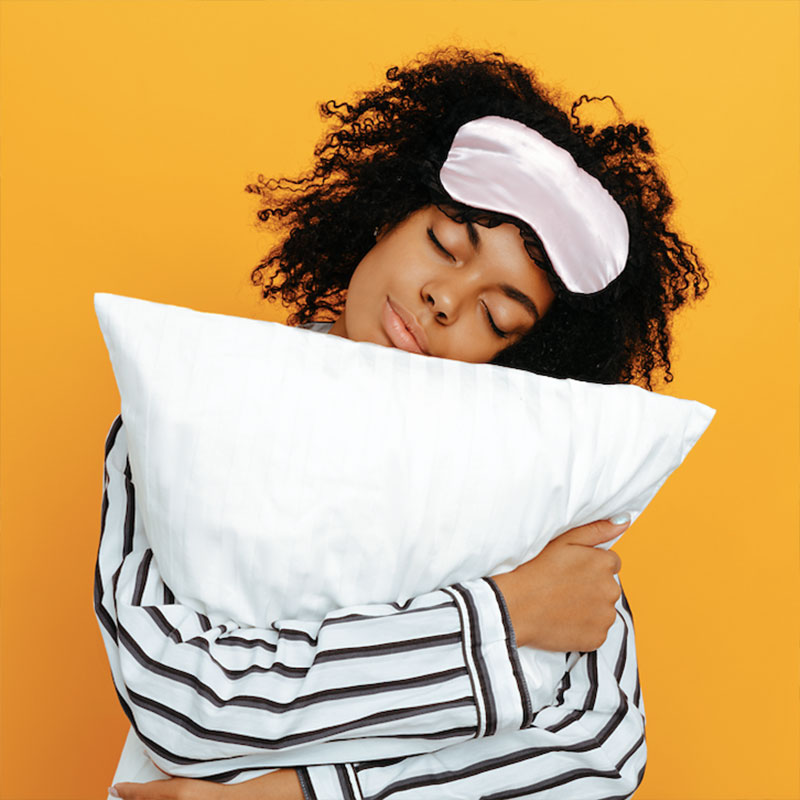#StopJunkLight®, Circadian Rhythm, Sleep, TrueDark® and Your Lighting
How to Set Sleep Goals That Will Really Stick

Article at a Glance:
- If you’re looking for a healthy New Year resolution, prioritizing sleep is a simple yet very effective habit that can help you in all different areas of your life.
- The bottom line is that adults need at least 7-9 hours of quality sleep every single night.
- When we don’t get the sleep we need, we put ourselves at greater risk for a host of health concerns, including but not limited to: weight gain, insomnia, heart disease, diabetes, mood disorders, Alzheimer’s, and even cancer.
- The key to actually making your sleep goals stick is to keep them simple. You may find greater success if you attach these new habits to older one.
- It’s also really important that you remain mindful of your light exposure — not just as night, but also throughout the daytime. Too much junk light will throw off your natural sleep/wake cycle, but getting proper lighting will help entrain your circadian rhythms and keep you healthy.
Every year on or before January 1st, many of us (over)commit to a lengthy list of goals that are meant to help us grow but often designed to fail. In fact, January 17th is “D-Day” for New Year’s resolutions – the day most people give up on their intentions and fall back into old habits – and nearly 80% of people abandon their New Year goals by February. The good news is that not all hope is lost on self “renewal”; the key to making your New Year goals work for you is to make them more positive, simple and effective.
It doesn’t get much simpler than this: everyone must sleep, preferably for 7-9 hours every single night.
Sleep is essential for:
- Helping your body recover and repair itself (from damage caused by stress, ultraviolet rays, and other harmful exposure)
- Retaining information and forming memories (during deep sleep your brain is busy processing your day — making connections between events, feelings and memories)
- Reducing inflammation (which affects the immune system and deteriorates the body as we age)
- Reducing stress (stress hormones are linked to high blood pressure, which increases your risk for heart attack and stroke)
- Muscle recovery
- Hormonal balance (including the hormones that regulate appetite)
- Mood regulation (people with serotonin deficiencies are more likely to suffer from depression or other mood disorders)
- Improving alertness, focus and productivity
- And much, much more!
So, be honest: are you getting enough sleep? According to the CDC, one in three adults are not getting consistent quality sleep each night. The result: a lot of tall (tired and grumpy) two-year olds that are not living up to their full potential.
Being Healthy is a Conscious (Lifestyle) Choice
Even though writing down personal goals has become a mainstream tradition, long-term goals really shouldn’t be dependent on one calendar year ending and another beginning. Life goals that frame what you want in (and out of) life should instead be set based on 1) where you currently are (mentally, physically, emotionally, financially, etc.) and 2) by the means of which you can achieve them.
With that said, here are some tips to help you stay committed to your sleep goals (for real this time):
- Be realistic and keep it simple. Instead of saying, “I will get two more hours of sleep each night,” it might be more realistic to verbalize, “I will go to bed 10-20 minutes earlier each night”. This way you begin to build a strong foundation for sleep rather than trying to achieve a lofty goal that feels more like a chore than relaxation.
- Attach a new behavior to an old one. For example, if you are someone that likes to watch Netflix, Hulu, or Amazon Prime Video in bed, then consider wearing sleep-hacking glasses — eyewear that is specifically designed to block out as much blue, green and violet light from LEDs and fluorescents as possible. The idea here is to make it possible to live in harmony in technology – so that you can enjoy your regular activities without disrupting your sleep. By attaching the healthy behavior of wearing your TrueDark® Twilights each night to your regular practice of using digital devices in bed, this will quickly become a natural part of your routine and you won’t even think twice about it.
- Be mindful of the light you’re exposed to. Remember, light plays a HUGE role in regulating your sleep/wake cycle, so be mindful of the (natural and artificial) lighting around you. Here are some more specific and actionable things that you can do throughout the daytime and at home to help your body stay in sync with its natural circadian rhythm.
Sleep is critical for mental, physical and emotional health. So, if you don’t feel like your best self, and/ or that you’re not living up to your full potential every day, please do a thorough review of your sleep patterns. Making such a simple change in your daily routine could be the difference between dreaming and living.

